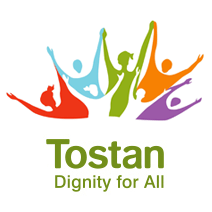Success Story: Theory of Change. The journey towards wellbeing Success Story: Theory of Change. The journey towards wellbeing
Guest post in collaboration with:
Muhammad Imran Kazmi, Senior Finance Manager in Khwendo Kor
Muhammad Imran Kazmi is the Senior Finance Manager in Khwendo Kor (KK), a well reputed local-based non-for-profit organisation in Peshawar, Pakistan. In 2019 KK was one of 8 social change organisations chosen to participate in The Wellbeing Project’s Organisational Exploratory Program (OEP). The purpose of the OEP was to support the organisations through a learning journey to build wellbeing into the heart of their cultures.
Consistent with its vision to build a society where women and girls live with dignity and self-reliance, organisational wellbeing within Khwendo Kor would be defined by a participatory culture and supportive community giving opportunities for every staff member to learn and grow.
Whenever there is change, there will be some resistance to that change: it is a normal human response to uncertainty. Imran explains his own resistance: “At first, I could not accept the idea of wellbeing in the context of Pakistan, where we have such challenges with education, with electricity, with so much. And I did not like the idea of sharing my learning with staff, with connecting with more people.”
He goes on to say: “I have a stammer tongue by birth and before joining the wellbeing project I was not accepting this problem. All the time I was crucially blaming myself and complaining to GOD for this given. It was always a big challenge for me to accept when I was given a chance to speak in a meeting or a public gathering. Only the thought of it brought always fear in my mind that if I stammer, I would be embarrassed and thus lose self-confidence.”
The OEP was, from the beginning, framed as a learning journey. Everyone came to understand that there were no one-size-fits-all answers. This was an exploration by the participating organisations to define what organisational wellbeing meant to them and identify how they might work to improve it. Learning would come whether the impact was as expected, or not. And learning would be shared among the 8 organisations.
Imran says: “Since I joined OEP in 2019 I had several check-in sessions with our organisational coach. I have a learning attitude, so I have positively learnt a lot from this journey. Since joining the OEP, I slowly and gradually started accepting it.”
“I worked on myself and learned through various session. I did research in internet to found ways to address my stammering and YouTube videos to learn on how to overcome stammering. Once I started accepting my stammer problem, it really worked out and now I don’t feel shame if stammer. This has really built my self-confidence and now sometimes when I speak, I don’t even stammer anymore. For this I feel very grateful first to myself because I’ve learned to change and to The Wellbeing Project /OEP team and Khwendo Kor (KK) for providing me with this beautiful platform not only for organisational wellbeing but also for my personal wellbeing.
Based on my experience I developed some powerful wellbeing indicators which has not only bought miracle change in my life but also a positive attitude. I recommend everyone to apply these in their life.
Regular practice meditation.
Acceptance.
Believe in yourself.
Expressing gratitude.
Calm and peace to have healthy mind.
Be happy and stay positive.
Exposure to nature.
Focus on yourself.
Be aware of the present moment.
Don’t think about your past and future that has yet to come.
Let the ego go.
Having said that, one indicator ACCEPTANCE from the above list has changed my life.
Last year, in 2022, one of our senior Board of Director Dr. Salma Masood Khan and myself have attended The Wellbeing Summit for Social Change in Bilbao, Spain. There we learnt from different sessions and met with beautiful souls across the world. This was an extraordinary experience for me as it was my first ever experience to travel abroad in an airplane. This international exposure was also an additional booster for me to learn and share mutual experiences. Upon our return, we have prepared a PowerPoint presentation and successfully conducted a one-day session on wellbeing to all our staff.”
As for powerful organisational wellbeing indicators, KK is currently heading into its mid-term Strategic Planning Review Process with organisational wellbeing top of mind. Initially Imran was primarily responsible for the KK wellbeing work. Now the KK Human Resource function is taking the lead -reviewing policies through the lens and perspective of wellbeing, looking at salaries, providing interest-free loans to staff, and offering retirement benefits to which the organisation and the staff members contribute.
Imran offers his own powerful wellbeing guidance. “Last but not least my humble submission is: Love yourself, care yourself so that you are able to love and care others as well”.
















































